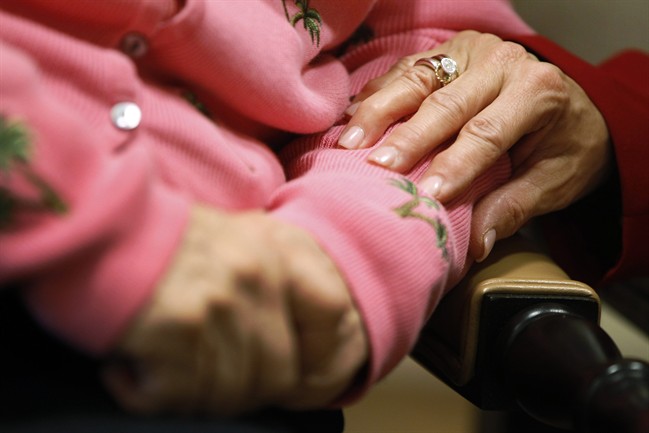A Quebec court has given the federal government more time to amend its assisted-dying legislation.

Ottawa was facing a March 11 deadline imposed last September by Quebec Superior Court Justice Christine Baudouin when she ruled it is unconstitutional to limit medically assisted death to those whose natural death is “reasonably foreseeable.”
Justice Minister David Lametti filed a motion Feb. 17 requesting a four-month extension, acknowledging the government would not be able to meet the deadline, and Baudouin agreed in a ruling Monday.
READ MORE: Liberals set to drop some assisted dying restrictions with new legislation
She has extended the deadline to July 11, noting the government has shown “diligence” on the file by leading a public consultation on the subject and tabling legislation last week.
In her ruling Monday, Baudouin creates a provision for those who had been hoping to access medically assisted death as of March 11. The judge said people who meet the other criteria for the procedure but whose natural death is not “reasonably foreseeable” can apply to a court for an exemption to receive an assisted death before the July 11 deadline.
For people experiencing intolerable suffering, she wrote, the four-month delay “also prolongs the violation of their rights to life, liberty and security and equality of the person.”

Get weekly health news
The plaintiffs in the case, Jean Truchon and Nicole Gladu, two Quebecers suffering from incurable degenerative illnesses, received such exemptions in her initial ruling last September.
READ MORE: Federal government asks court for more time to amend assisted dying law
Commenting on the extension Monday, a spokeswoman for Lametti called medical assistance in dying “a complex and deeply personal issue for many Canadians across the country.” Rachel Rappaport said the government looks forward to “robust parliamentary debate” on the bill tabled last week.
The bill scraps the provision that only those already near death can receive medical assistance in dying. But those whose death is not imminent would face more restrictive conditions under the law.
They would face a minimum 90-day period for assessment of their requests, which could be shortened if loss of mental capacity is imminent. One of the two medical practitioners who assesses a request would have to have expertise in the patient’s particular medical condition. And the patient would have to be able to give final consent immediately prior to the assisted death.


Comments